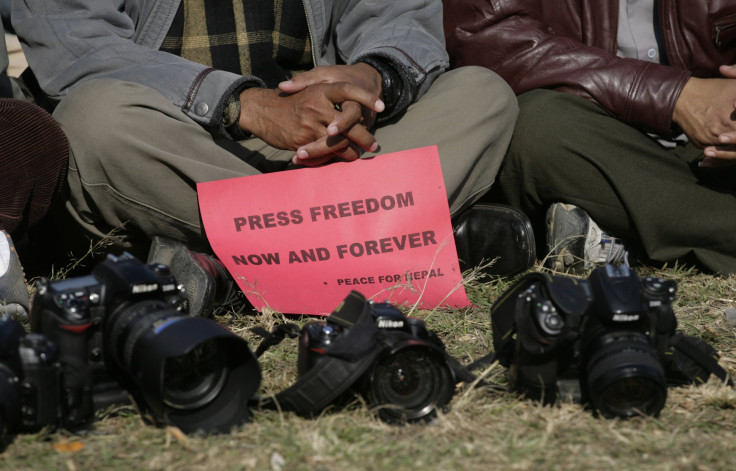Freedom Of Press Witnesses 'Drastic Decline' Globally Amid Emerging Threats To Journalists

An increase in violent incidents directly targeting journalists in several nations around the world resulted in a “drastic decline” of freedom of the press in 2014, according to the latest edition of the World Press Freedom Index, released Thursday by Reporters Without Borders.
The Press Freedom Index, published annually, ranks countries on several criteria, including media independence, legislative framework and the level of censorship prevailing in the country, and the infrastructure environment in which the media operate. Syria -- ranked 177 out of 180 nations -- where several journalists have been executed by the Islamic State group in recent months, was ranked as the world’s deadliest country for journalists in 2014.
“Beset by wars, the growing threat from non-state operatives, violence during demonstrations and the economic crisis, media freedom is in retreat on all five continents,” the international watchdog group said, in a statement accompanying the report. “Two-thirds of the 180 countries surveyed for the 2015 World Press Freedom Index performed less well than in the previous year.”
The best-rated nations were northern European states such as Finland, Norway, Denmark, the Netherlands and Sweden, while Syria, Turkmenistan, North Korea and the East African nation of Eritrea were the worst performers.
The report alleged that while censorious regimes in Syria, Russia and Egypt were partly responsible for the global decline, non-state entities such as ISIS in Syria, Boko Haram in Nigeria and Al-Shabaab in Somalia constituted the main source of physical danger for journalists.
“North Africa and the Middle East, this year once again contained information ‘black holes.’ Comprising entire regions, these are controlled by non-state groups in which independent information simply does not exist,” the report said.
Journalists in Syria were also in danger of being arbitrarily detained and tortured by forces loyal to President Bashar Assad, the report said, while Reporters Without Borders named Assad in its “Predators of Press Freedom” list.
Strict anti-blasphemy laws were also found to be a danger to freedom of expression in almost half of the world’s countries. “When ‘believers’ think the courts are not doing enough to ensure respect for God or the Prophet, they sometimes take it upon themselves to remind journalists and bloggers what they may or may not say,” the report said.
Press freedom also continued to decline in the U.S., which was ranked 49 -- three spots lower than in the previous report -- as a result of the government’s “war on information” on groups such as Wikileaks.
“U.S. journalists are still not protected by a federal shield law that would guarantee their right not to name their sources or reveal other confidential information about their work,” the organization said, in the statement, adding that arbitrary arrests during the Ferguson protests last year had also contributed to the decline of press freedom in the country.
© Copyright IBTimes 2024. All rights reserved.






















